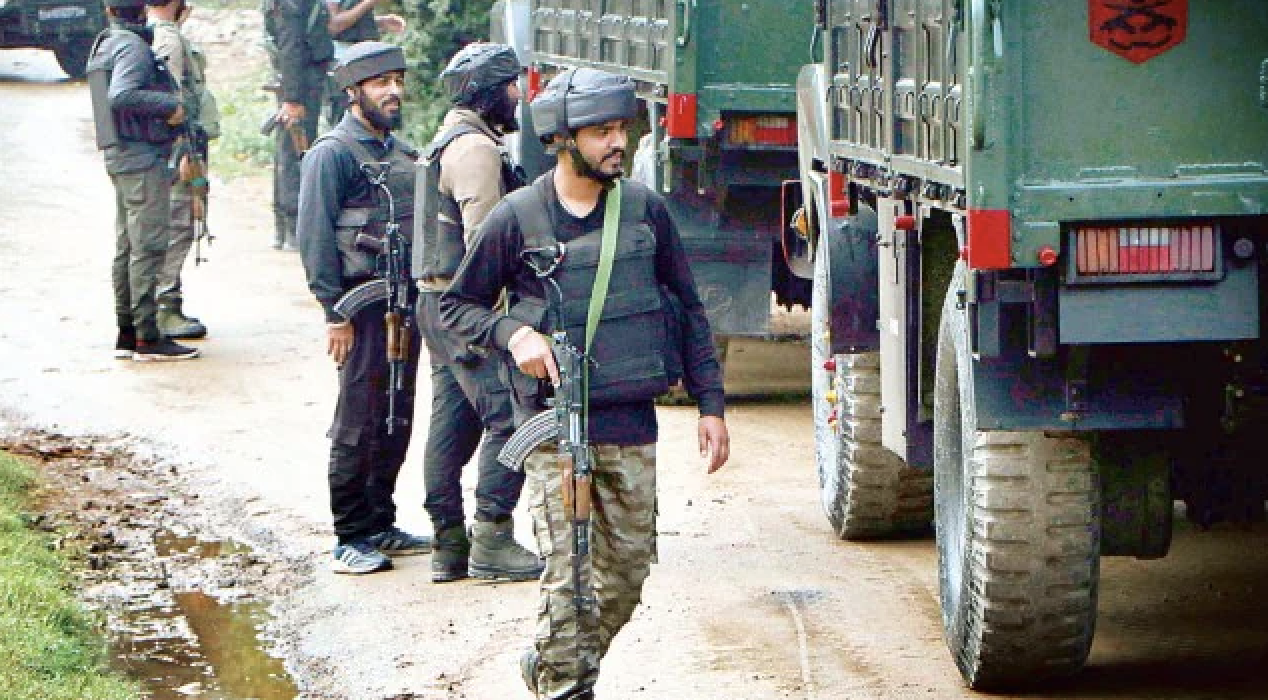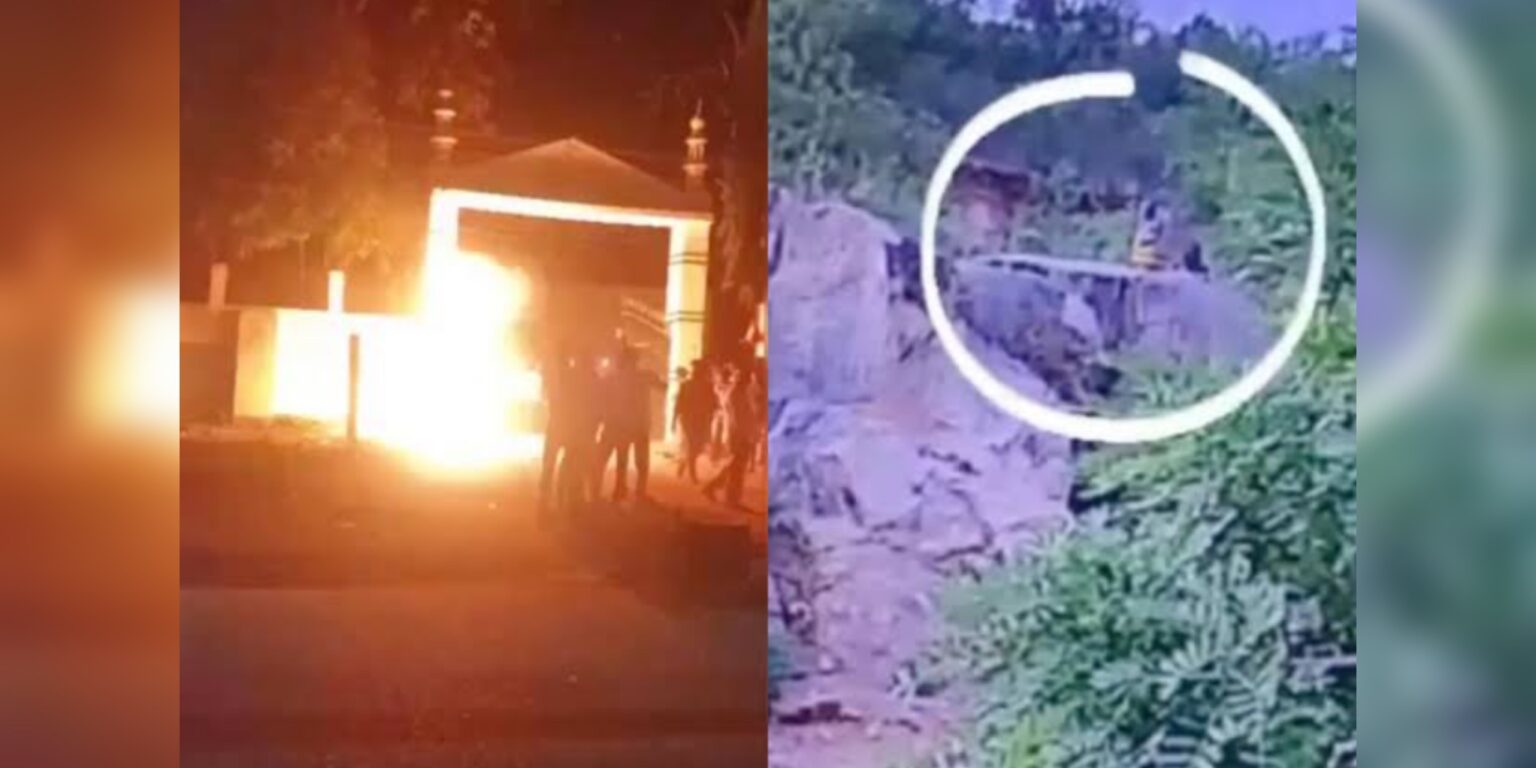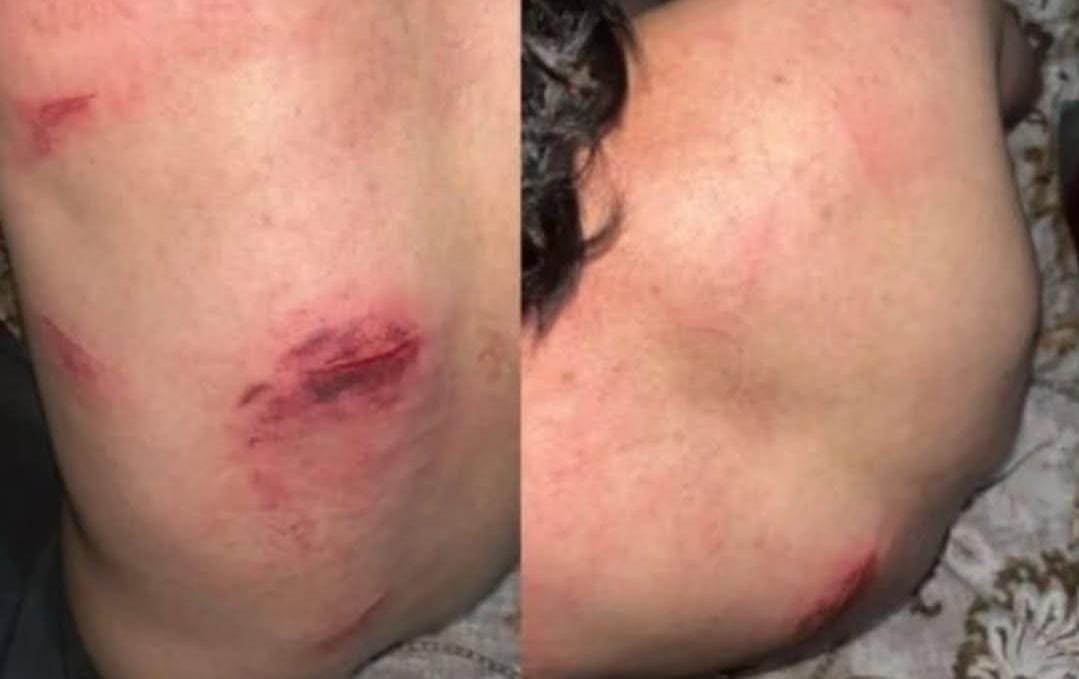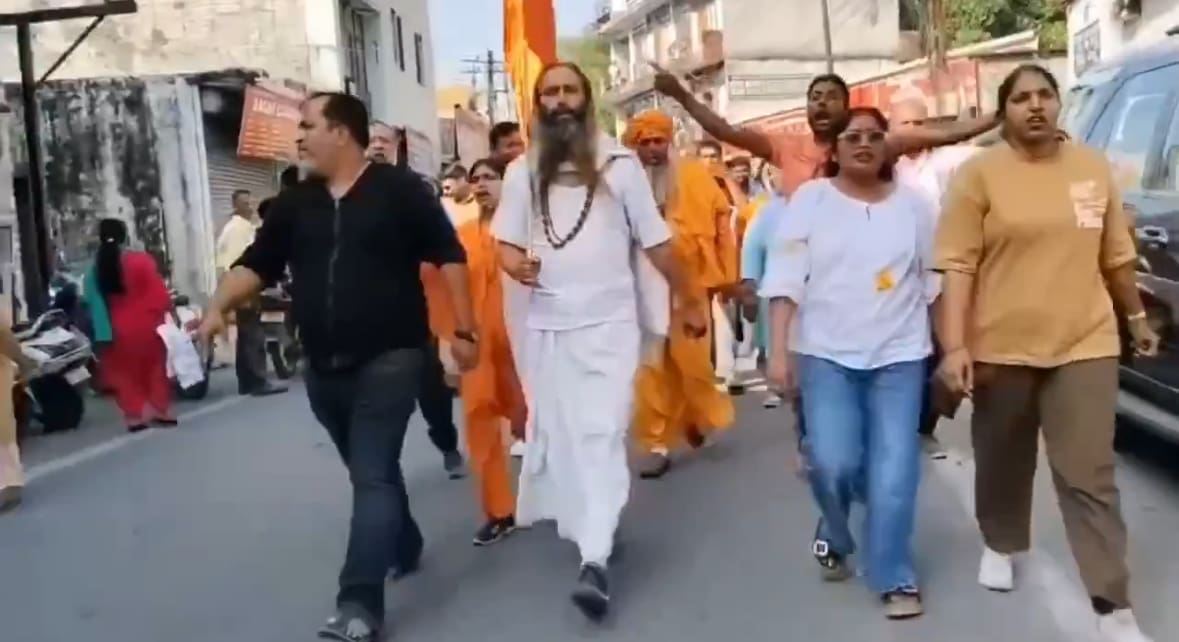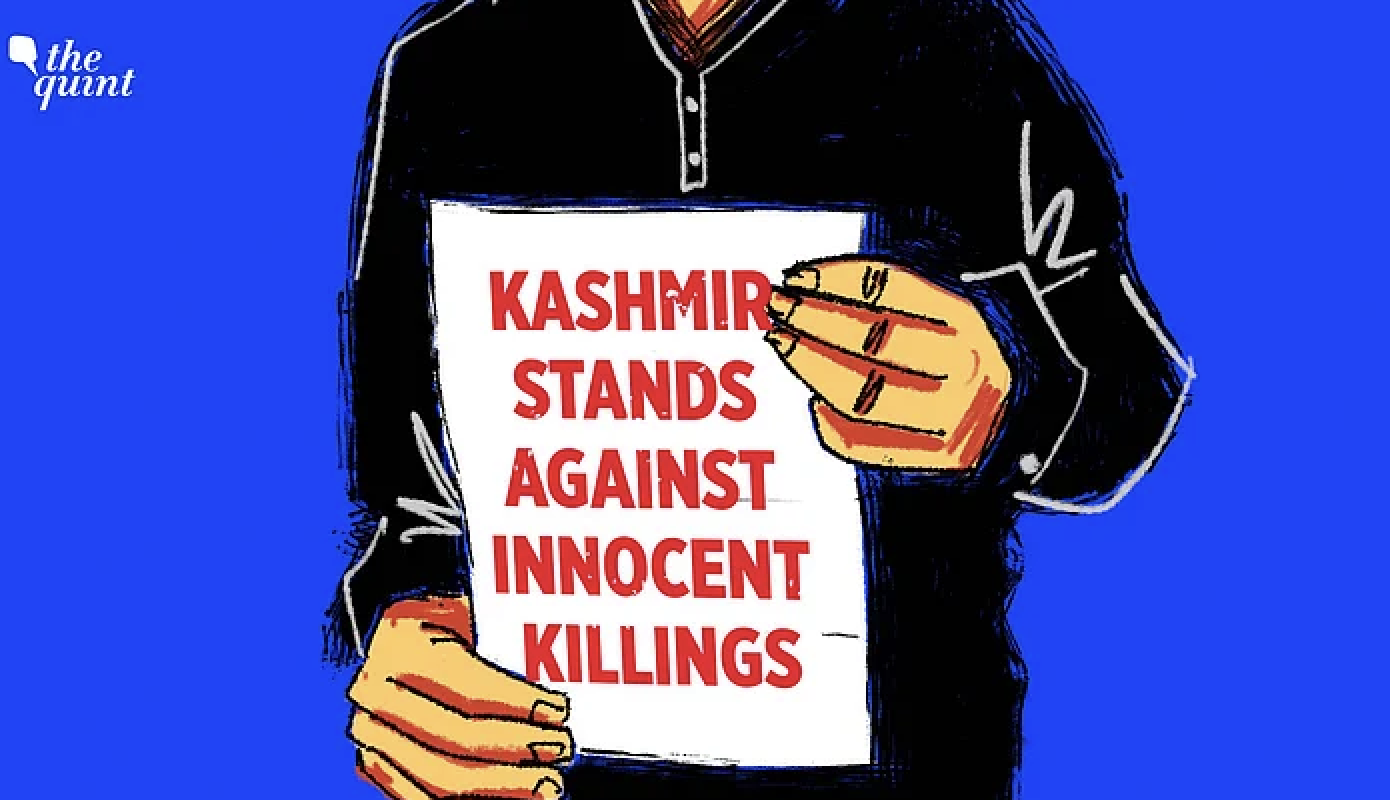
Srinagar, Indian-administered Kashmir – This month, Aasif Sultan, a journalist from Indian-administered Kashmir, completed 1,000 days in prison since his arrest in August 2018 under the Unlawful Activities (Prevention) Act or UAPA, a stringent anti-terror law.
Sultan, 34, who worked as an assistant editor for a Srinagar-based English magazine, is accused of “harbouring known militants”, an allegation he denies. He has also been charged with murder, attempt to murder and other crimes.
But Sultan’s family and the editor of Kashmir Narrator, the magazine he worked for, deny the accusations, saying he was arrested for his journalistic work, particularly for a story titled The Rise of Burhan, which he wrote for his magazine in July 2018.
In the 4,000-word story on the killing of Kashmiri rebel commander Burhan Wani in 2016 by Indian security forces, Sultan wrote why the 22-year-old rebel had proved to be “more dangerous” for India “in his grave than in his living room”.
The Himalayan region of Kashmir is divided between India and Pakistan, who rule over portions of the Muslim-majority territory but claim it in full. The two nuclear-armed nations have fought two of their three full-scale wars over the region.
Meanwhile, an armed rebellion against Indian rule in Indian-administered Kashmir began in the early 1990s, with thousands of young Kashmiris joining the rebels, who either demand an independent state or a merger with Pakistan.
In his story, Sultan wrote that after Wani’s killing, “more and more young boys are disappearing into the woods to follow Burhan’s path.”
Wani’s killing on July 8, 2016 made global headlines and triggered a wave of anti-India protests across the disputed region, in which nearly 100 people were killed as Indian police and troopers swooped down on the protests with live bullets and pellet guns.
For his story, Sultan had managed to get exclusive photographs and details about Wani, including interviews with so-called overground workers (OGW), a term used in the restive region to describe non-combatant members of rebel groups, who are usually given logistical tasks.
“Interestingly, one of them [OWG members] met him [Sultan] in a police station in southern Kashmir and the interview was facilitated by a police officer. He [the OWG member] gave us all the details. It was something exclusive which had not appeared anywhere,” Kashmir Narrator’s editor Showkat Motta told Al Jazeera.
“The story in question angered the police apparatus in Kashmir. Unfortunately, such bold and honest reportage seldom appears in local media, which explains why the police establishment here didn’t take it in stride.”
Police added Sultan’s name to a first information report (FIR) filed about a gunfight with the rebels in Srinagar’s Batamaloo area on August 12, 2018. One policeman was killed in the operation while at least three rebels managed to escape.
During a midnight raid on Sultan’s house following the incident, police claimed to have found “incriminating material” in his possession. His laptop and mobile phone were seized as evidence.
“In the charge sheet, they [police] claim to have found incriminating material from his home, an iPhone and his MacBook. The police said they have sent them for forensic analysis to Chandigarh. But two-and-a-half years have passed since but that forensic report hasn’t come yet. Why is it so?” Motta asked.
Sultan’s lawyer Adil Abdullah Pandit says his client was not present at the site of the gunfight, a fact “admitted by the prosecution” and describes the police case as “purely fabricated”.
“Then how can charges of 302 [murder], 307 [attempt to murder] and 326 [voluntarily causing grievous hurt by dangerous weapons] be invoked against my client? These three offences cannot be made out against Sultan,” Pandit told Al Jazeera.
Under the UAPA, Pandit said Sultan is accused of “harbouring terrorists” and conspiracy against the state by giving assistance to rebels.
“There is no evidence on record which could prove that Aasif Sultan has provided any assistance or logistic support to the militants or he harboured any militant,” Pandit added.
GV Sundeep Chakravarthi, currently the senior superintendent of police in the frontier Kupwara district, was posted in Srinagar when the gunfight happened. He was the investigating officer in Sultan’s case.
Days after Sultan’s arrest, Chakravarthi told Indian news website Scroll.in that the journalist was “writing against uniformed forces”.
But the police officer refused to speak to Al Jazeera about the case.
Sajjad Shah, current superintendent of police for Srinagar City (South), said he had nothing to say since the matter is before a court of law.
“I don’t have anything on it,” Shah told Al Jazeera. “Whatever evidence would be there, that must have already been submitted in the court.”
But Sultan’s parents believe their son is behind bars because of the story he had written on rebel commander Wani.
“My son has nothing to do with militants. He is innocent and has been put in jail for only one reason, the story he wrote on Burhan Wani,” Sultan’s father Mohammad Sultan told Al Jazeera.
Motta said arresting Sultan was “simply an act to muzzle the voice of an independent media house” in the disputed region.
In a statement on May 23, the Committee to Protect Journalists (CPJ), a United States-based non-profit committed to promote press freedom and defend the rights of journalists, demanded an immediate release of Sultan from jail.
“Kashmiri journalist Aasif Sultan has been in prison for the last 1,000 days. He has repeatedly been denied bail. Aasif was arrested after publishing a story on militant Burhan Wani in August 2018,” CPJ wrote on Twitter.
CPJ said Sultan’s trial began in June 2019 and has been “moving slowly”.
“CPJ along with 400 journalists and civil society members have written to Prime Minister Narendra Modi demanding his immediate release,” wrote the non-profit.
In 2019, Sultan was awarded the annual John Aubuchon Press Freedom Award by the US National Press Club. Last year, he also featured in TIME magazine’s “10 Most Urgent” cases of threats to press freedom around the world.
Sultan’s is not an isolated case in the disputed Indian-administered Kashmir region.
In 2017, Kamran Yusuf, a photojournalist from the region, was arrested by India’s National Investigating Agency (NIA) under the UAPA.
The NIA accused Yusuf of being involved in stone-throwing incidents and organising groups of youth to do so at the government forces in the region.
Yusuf spent more than six months in a New Delhi jail before he was released on bail in March 2018, apparently for lack of evidence.
Since August 2019, when India abrogated the special status of Indian-administered Kashmir and turned it into a federal territory, many journalists have been summoned by police and cases filed against them.
In some cases, Kashmiri journalists were asked to reveal the sources of their stories and explain their reports.
In a first-hand account published in October last year, Fahad Shah, editor of news website The Kashmir Walla, wrote that he along with a colleague was detained by the police at gunpoint on a highway and “treated like a criminal” during a four-hour interrogation.
He told Al Jazeera that in the past two years, he has been summoned to police stations at least six times and has two cases filed against him after his website published stories “that the state didn’t like”.
“It’s more like a message to other journalists that if you do something like this or if you go to an extent where the state doesn’t like you, you can be booked in a case or two and you will be thrown into jail like Aasif,” Shah told Al Jazeera.
“Reporting has been criminalised and censorship institutionalised in the region.”
This story was first appeared on aljazeera.com


